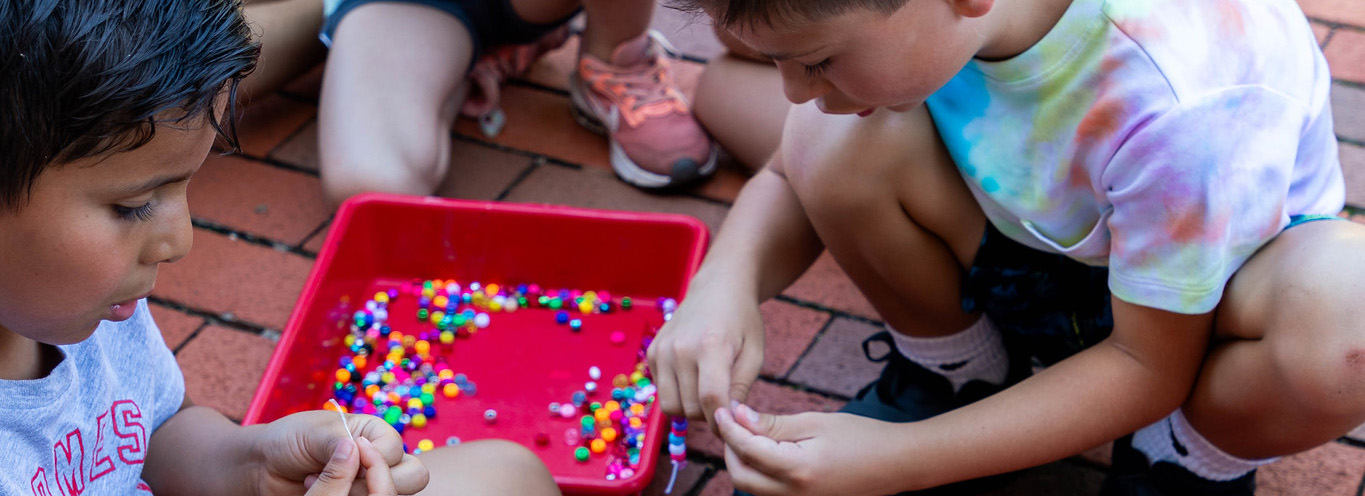Child Development Research Center

Curriculum
The Center is committed to the belief that children can develop to their highest potential in a nurturing atmosphere which fosters mutual respect and an appreciation for the uniqueness and capabilities of the individual.
Thus one of our primary goals is to provide an individualized developmental program for each child we serve, including mildly and moderately handicapped children and children from culturally and socio-economically diverse backgrounds.
Using the High/Scope curriculum, a widely recognized successful approach to early education, children are encouraged to be "active learners," to have daily opportunities to decide what they want to do. The fundamental premise is that children learn best from experiences which they plan and carry out themselves. Thus the role of the teacher is to build upon each child's existing strengths and accomplishments, using his or her activities as the springboard for further development.
Through individual, small group, and large group experiences, teachers initiate activities designed to meet the needs of every child involved, with an emphasis on facilitating the development of the total child--physical, social, emotional, and cognitive. Learning through play, through exploring the environment, and through interacting with others are essential components. Children progress at their own pace as they are supported and encouraged to participate in both child-selected and adult-initiated activities. In order to further the children's knowledge, these experiences are usually incorporated into bi-weekly thematic units appropriate to the needs and interests of the children.
Learn more about the High/Scope Curriculum by watching a video here.
Basis of The High/Scope Curriculum
Piaget's theories guide us in our search for the best ways to support and extend preschoolers' emerging skills. True, some of his theories have been questioned, and rightly so, and other experts have come on the scene with thought-provoking suggestions and statements. We have learned, for example, that Piaget's stages of development are not as clear-cut as initially thought. Children can sometimes "think" in more mature ways that we would expect, based on Piaget's theory. Nevertheless, we believe that the "laws of intelligence," derived largely from Piaget's developmental theory and research, continue to have important implications for early childhood teaching and learning.
The fundamental premise of the High/Scope Curriculum is that children are active learners who learn best from activities they plan and carry out themselves.
We at High/Scope embrace the concept of "active learning" in everything we do: teacher training, research, early childhood education. In High/Scope's approach to early childhood teaching and learning, the following precepts have remained constant over our 20-year history of research and curriculum development:
- Teachers must understand how children mentally construct the world and how these mental constructs change in the course of children's development. Teachers must assess each child's understanding of number, length, weight, space, and time, and work within each child's reasoning abilities.
- Teaching must build upon, not direct or control, the thoughts and actions of children. Since learning occurs when children become intensely involved in activities or projects of their own design, teaching means insuring that children choose and organize their own work. Teaching, then, means ensuring that children's chosen work becomes a context for thinking.
- Children must have daily opportunities to decide what they want to do. The teacher helps each child develop a plan, break it into manageable pieces, define a sequence of steps, and identify needed materials. At the preschool level, the child begins to plan simply by making a commitment, which the teacher supports, to a particular activity. Over time, the child's plans will increase in range and complexity as he or she develops the ability to think about choices and decisions before acting upon them.
- The child's daily plan must provide the starting point for teaching. It's the springboard for questioning, suggesting, posing problems. The teacher helps each child think about what he or she is doing, make observations, notice relationships, and define and solve problems.
- Certain key experiences are essential to children's early intellectual growth. Guided by these key experiences, the teacher deliberately and systematically helps children predict, observe, describe, explain, manipulate, hypothesize, and find alternatives. The teacher's job is to help children incorporate these processes into their work.
These precepts have guided our curriculum research and practice for over 20 years and have produced the unified educational theory that is described in our curriculum manual Young Children in Action and its accompanying Study Guide. They have been validated in a 20-year longitudinal research project, as reported in the High/Scope monograph Changed Lives: The Effects of the Perry Preschool Program on Youths Through Age 19.
Child Development Research Center
-
Address
15th Street and Akron, Box 41230, Texas Tech University, Lubbock, Texas 79409-1230 -
Phone
806.742.3016 -
Email
cdrc@ttu.edu
